Northeastern University conference in Oakland tackles economic and workforce development issues
The event convened leaders of community organizations to discuss innovative solutions to workforce development, housing, health equity, youth empowerment and community safety issues.
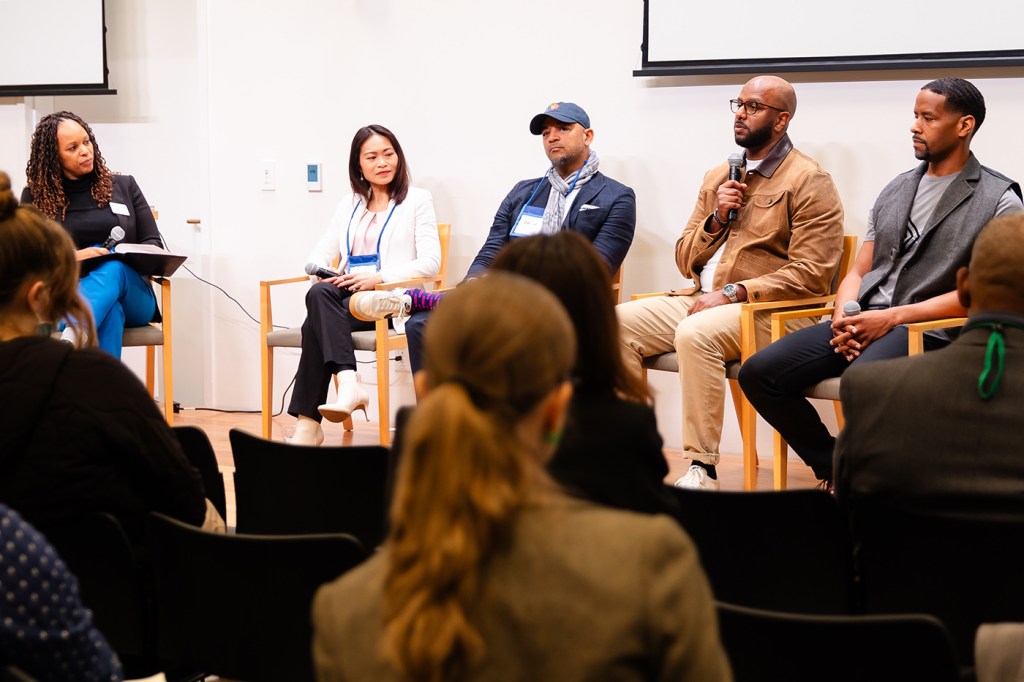
OAKLAND, Calif. — The Community to Community (C2C) Impact Engine at Northeastern University convened many of the Bay Area’s leaders in economic and workforce development last week for a first-of-its-kind conference to share challenges and successes in the work of developing equity.
Launched last year by Northeastern faculty in Boston and Oakland, “Community to Community (C2C): Policy Equity for All” project conducts research in partnership with community organizations and governments to address issues such as workforce development, housing, health equity, youth empowerment and community safety.
“This event is an example of what we do,” said C2C co-founder Carrie Maultsby-Lute, who is now serving as head of partnerships for Northeastern in Oakland. “It’s an opportunity to connect leaders through all sectors — private, for profit, nonprofit and foundations. Everyone here wants Oakland to succeed.”
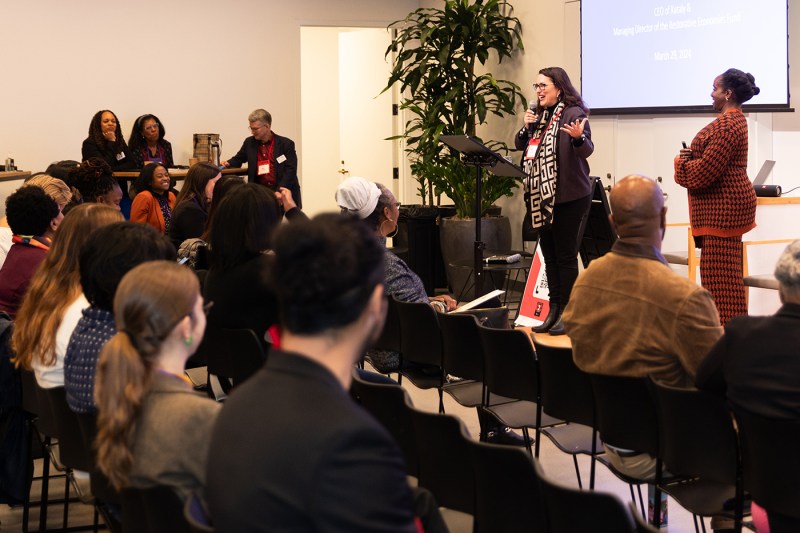
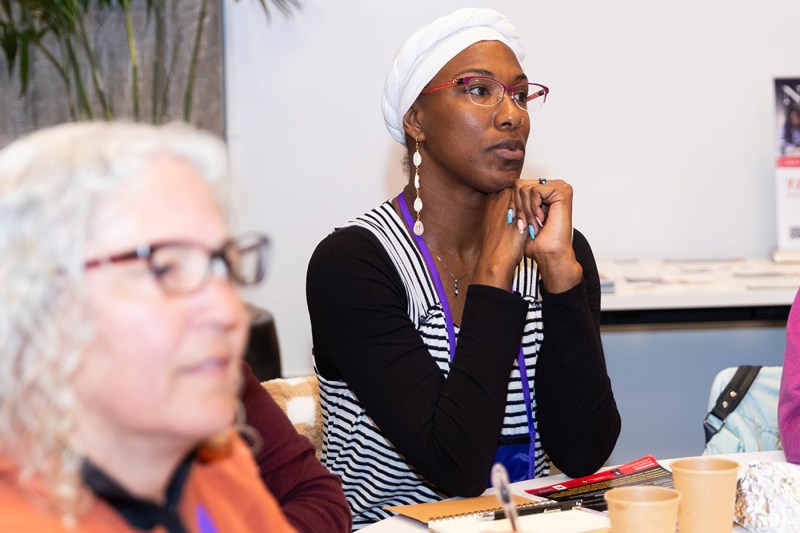
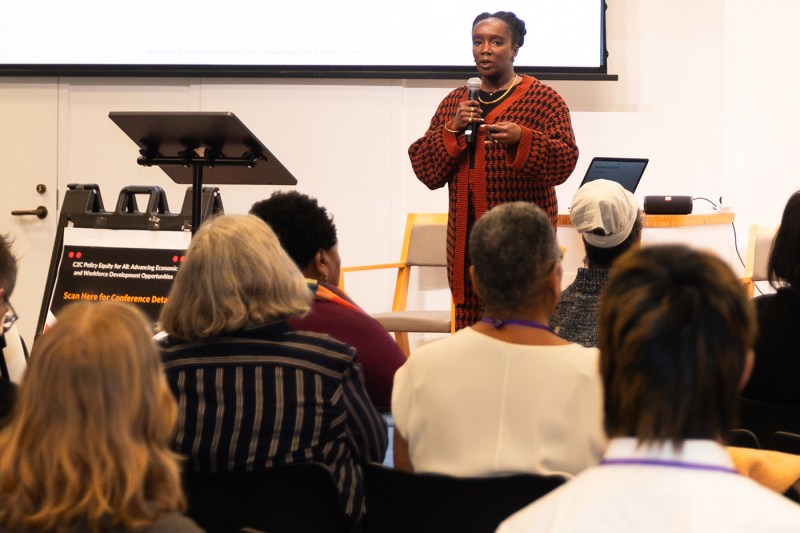
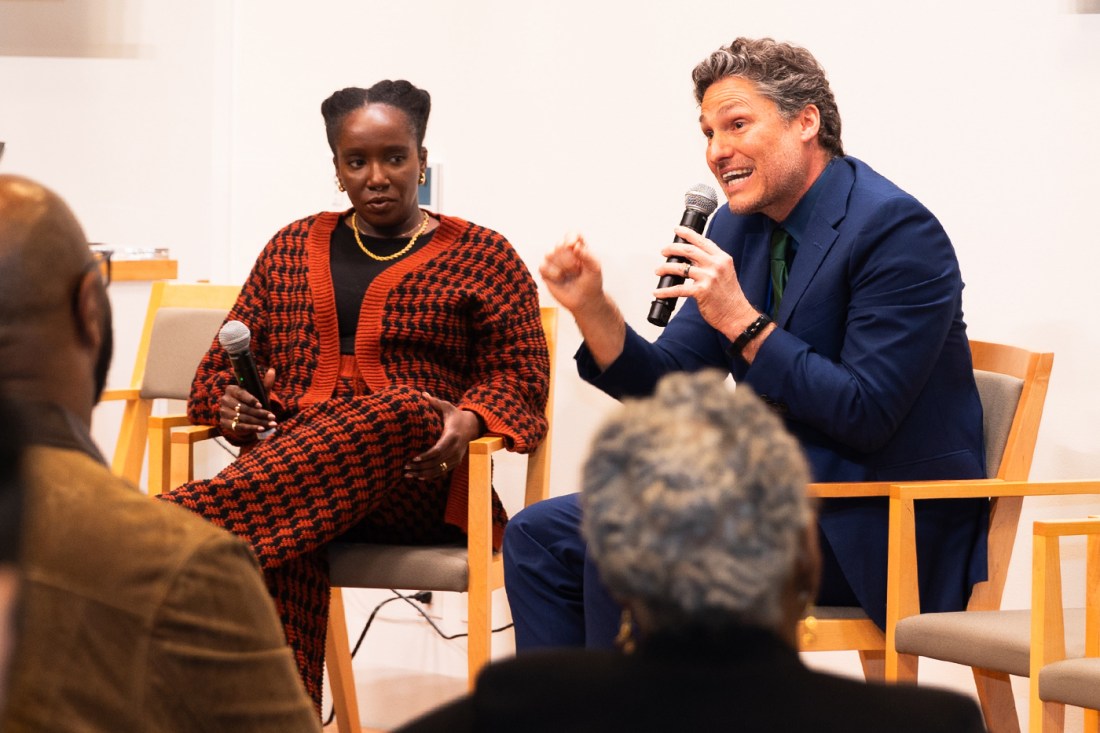
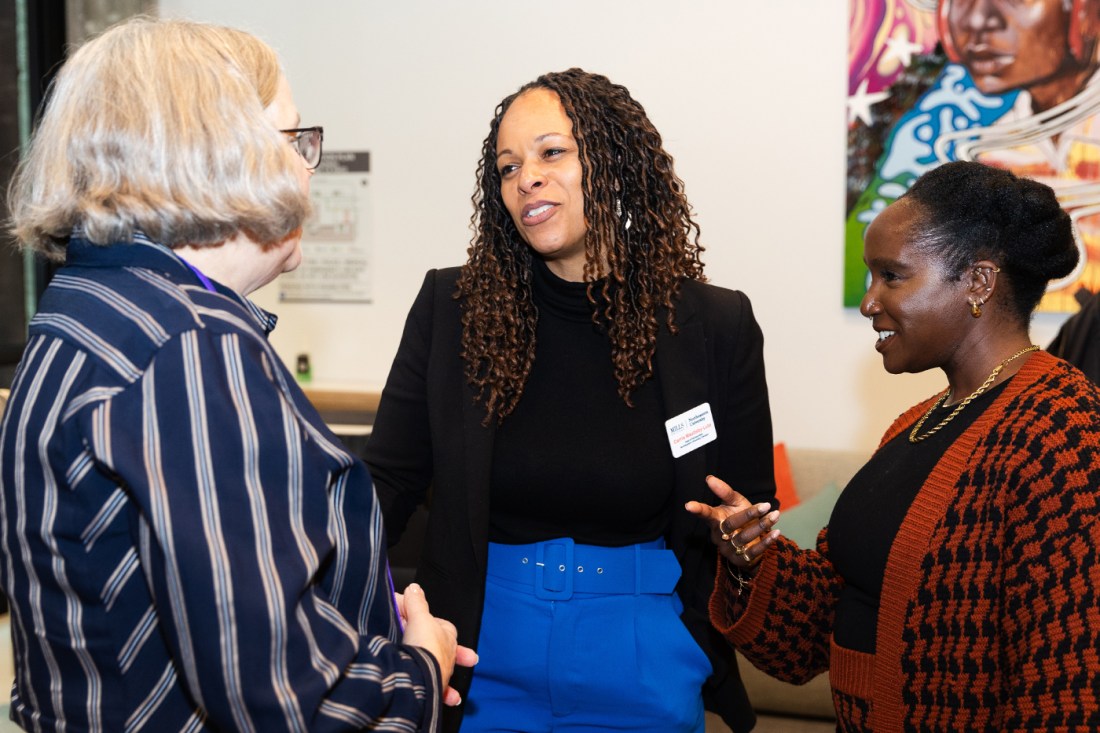
“There are so many ways we can partner for innovation and growth,” Maultsby-Lute said in welcoming attendees.
Close to 200 leaders and officials from community-based organizations, foundations, community colleges, private businesses and local government discussed ongoing work toward economic justice in the region and ways that Northeastern can advance those efforts.
“The university has an important role to play in convening multi-sectoral gatherings to advance economic and workforce initiatives in our region,” said Alli Chagi-Starr, C2C Oakland regional director at Northeastern.
The day started with a deep dive into restorative economics, a framework used to put reparations, reconciliation and restorative justice at the center of philanthropy.
Grant-making foundations traditionally operate by giving away a small portion of their assets while using the bulk of funds to accumulate more wealth. The San Francisco-based Kataly Foundation invests in community-owned and governed projects led by people of color. Operating under a restorative economics model, Kataly invests most of its funds into community projects that demonstrate a commitment to sharing prosperity.
“So much of this country’s wealth was built on the backs of Black and brown communities,” said Nwamaka Agbo, CEO of the Kataly Foundation. “Our mission is to reinvest and restore communities that have been extracted from, so they are part of the conversation.”
This approach is also at the core of investing for ESO Ventures, which provides incubator programs, support and capital to Black and brown entrepreneurs. ESO co-founder Alfredo Mathew joined Agbo for a conversation on how to use capital investments to address local inequities and keep assets in neighborhoods.
“We think about big employers and how to get folks trained to work for them,” Mathew said, “but what we need is community-centered employers and dignified workplaces where employees own their capital and get wealth from that asset.”
Ideally, successful work experiences should start young. The first panel generated lively discussion about the challenges and successes of local youth workforce training programs, including Ximena Montes, associate director of youth services for The Unity Council based in Oakland’s largely Latino Fruitvale neighborhood.
The Unity Council provides training pathways for high school students to get the skills they need for jobs in health care, Internet technology and communications, but more job referrals are needed, Montes told panel facilitator Sofia Navarro, director of Oakland’s Economic and Workforce Development Department.
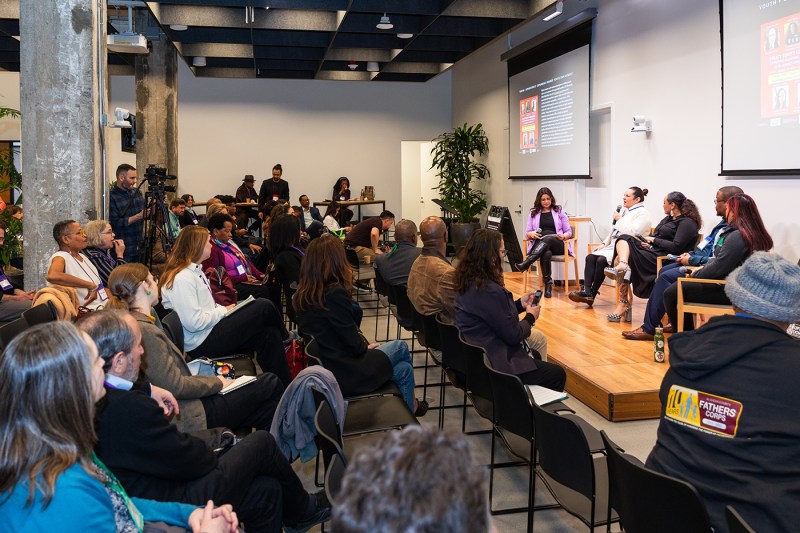
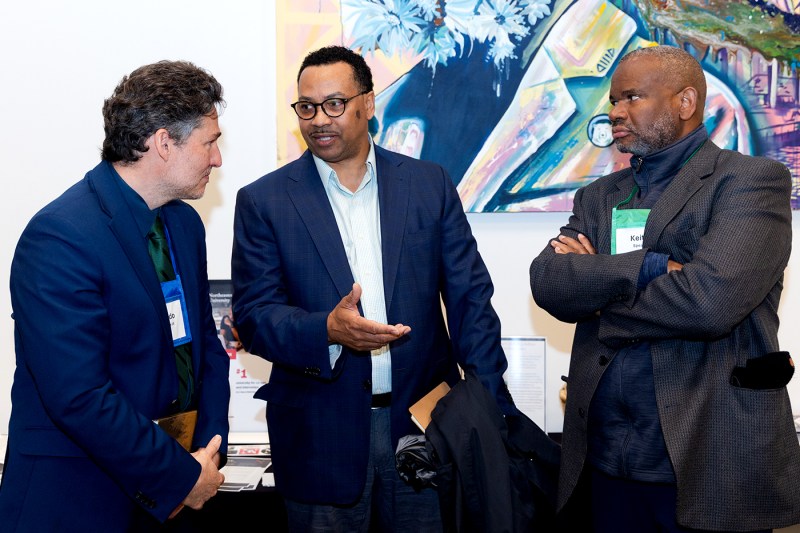
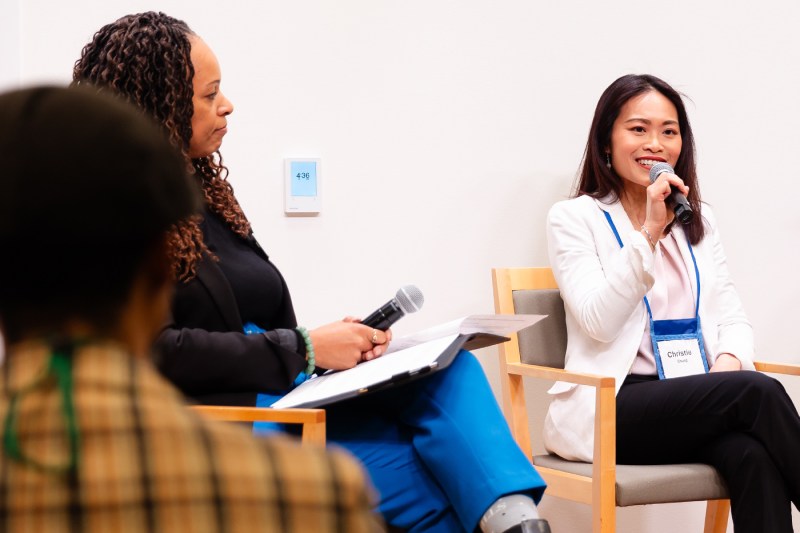
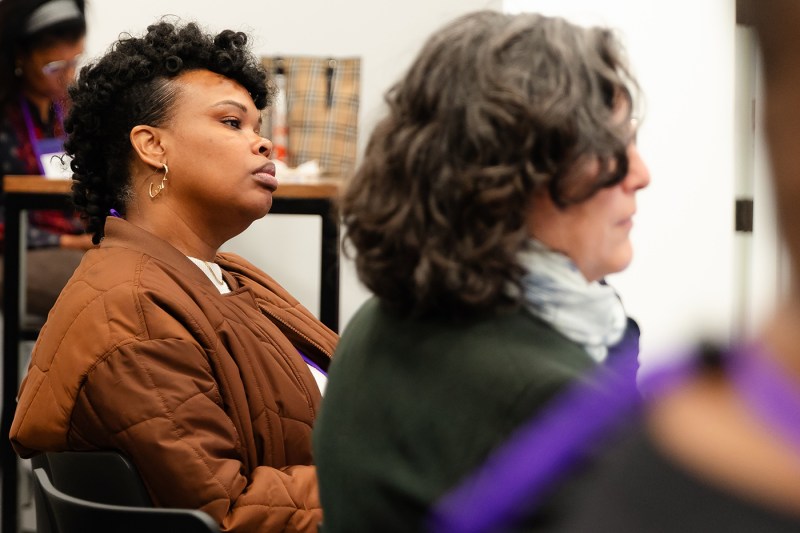
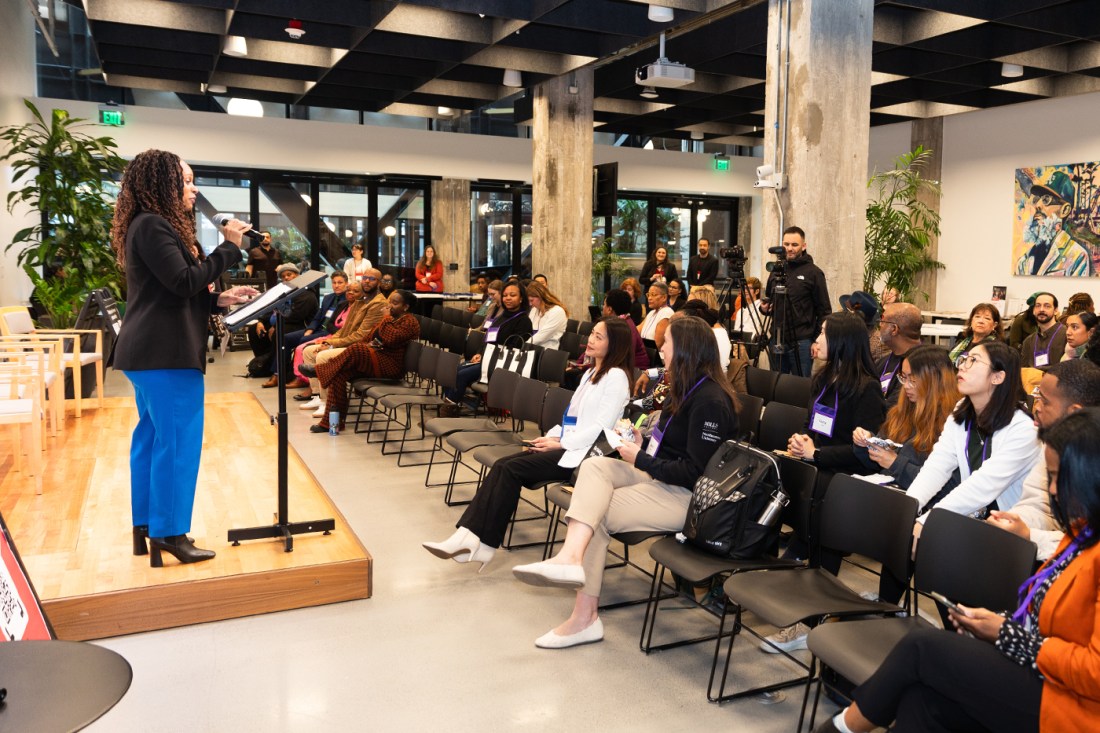
“We need more linkages with employers,” she said. “The city can help us make connections with businesses so that we can better employ our young people.”
But simply placing students in available positions isn’t enough, said Selena Wilson, CEO of the East Oakland Youth Development Center.
“Our job is to create the economic stability that allows them the flexibility to explore and find out what they want,” she said. “We have to stop funneling Black and brown kids into careers that we think will be viable but allow them the freedom to have a real choice.”
Giving young people opportunities to experience different types of jobs through a robust youth summer job program is at the top of the list of ways C2C is partnering with the city of Oakland, said Maultsby-Lute. A highly successful example already exists, she said, in Boston, where C2C’s executive director, and associate professor of economics and research director for the Dukakis Center for Urban and Regional Policy Alicia Modestino, helped the city launch an ambitious summer jobs program that placed 9,000 students in jobs last year.
“We’re trying to mirror some of that work,” Maultsby-Lute said, “and take what’s working well in Boston to bring it to Oakland.”
In addition to good jobs, young people of color need access to STEM education and career pathways. Maultsby-Lute facilitated the day’s second panel, focused on equity, AI and technology. Representing Block, the company that developed the payment platform Square, Ahmed Ali Bob said that since the pandemic changed many ways that business is conducted, Block works with ethnic chambers of commerce and other organizations to make sure that entrepreneurs get the equipment they need to adapt to the digital economy.
“What I’m excited about is putting AI in the hands of an entrepreneur,” he said. “A baker may love baking, but may not love inventory management, email marketing or payroll. We’re giving people time back to do what they love.”
Other types of technology can have an impact on the working lives of Black and brown people. The third panel was facilitated by Chagi-Starr, who helped to found Green For All with Van Jones. It featured discussion about efforts to develop jobs in the clean energy economy, particularly for people who live in neighborhoods where pollution and climate change are having the biggest impact.
Featured Posts
There’s a steep learning curve for many people just to understand terms used in the field, said Glendie Domingo, climate careers director at Rising Sun Center for Opportunity.
There isn’t enough access to energy efficiency knowledge, she said, so part of her work includes demystifying ideas, including decarbonization and how gas stoves impact air quality in homes.
“Our purpose isn’t to link people to green jobs,” she said, “but to lead them to pathways that will provide life-sustaining careers so they can thrive.”
Thriving includes stable housing and stable housing requires income sufficient to pay rent or a mortgage. The day’s fourth and final panel centered on the intersection of housing and employment, two intertwined and basic life necessities.
Supporting a person with stable housing and job training should involve sticking with them beyond the first apartment and job placement, said Erica Waterford, vice president for employment and education at First Place for Youth.
Skills include keeping their apartment clean, taking out trash and respecting neighbors. More importantly, she said, First Place for Youth acts as a master lessee on apartments since many clients either have no credit history or have bad credit.
Featured panelist Carolyn Johnson, CEO of Black Cultural Zone, is working at the intersection of economic, cultural, commercial and community development in East Oakland, one of the city’s historically underserved communities.
Dr. Noha Aboelata, founding CEO of Roots Community Health Center, said she never thought her organization would offer housing support, but they recognized the need. Starting out as a community health clinic, Roots has expanded to offer job training and housing support. With two workforce training programs, in body care products and commercial sign manufacturing, Roots has a goal of providing clients with skills they can use to find well-paying jobs.
“The biggest barrier to good health is poverty,” Aboelata said. Roots provides health care to children and adults and works with landlords and employers to help clients negotiate problems as they arise. “We’re here for the long haul.”
At the end of the day, C2C’s success as a partner with local organizations comes down to having more events like this one, said Mark Henderson, professor of public policy at Northeastern’s Oakland campus.
“Being part of the Northeastern network means we can be local on a global scale,” he said. “This requires being attuned and to connect people who are working on and bringing students in to help. And that kind of training requires listening.”










